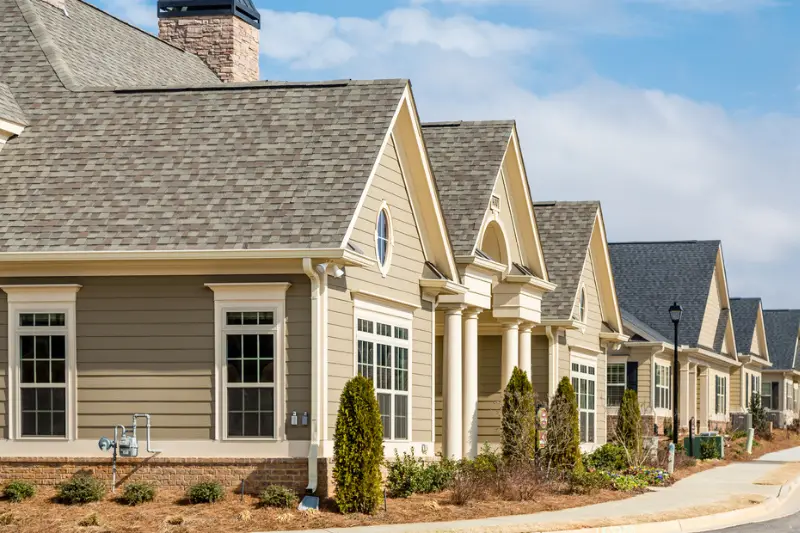Click here to get this post in PDF
Buying a new home is one of life’s more exciting times, especially if you have found your dream home and can’t wait to move in. However, don’t let your enthusiasm cloud the fact that the actual selling price of your home is not the only outlay you will need to make. Moving house is a costly business and you need to be prepared for all potential costs – especially hidden costs. This is true of both leasehold and freehold properties. Your property lawyers will be able to guide you through any pitfalls, but it always pays for buyers and vendors to be well informed at every stage of the conveyancing process.
Here are six additional costs associated with moving house that you will need to bear in mind when working out your final budget.
Mortgage arrangement costs
Negotiating your mortgage is normally one of the first stages in buying a property and this will usually have happened early on, even before you start viewing houses and flats that are on the market. However, don’t forget that you will usually need to pay your mortgage lender, or broker, a fee for having them set up your mortgage in the first place. The amount can vary from lender to lender but can be as much as a couple of thousand, depending on individual circumstances. Always ask in advance how much this fee is going to be and whether you have to pay it upfront or not, so you can set the appropriate funds aside.
Legal fees
For the majority of property purchases, it is advisable that you engage a property solicitor to guide you through the process, carry out essential checks, such as land registry and local searches to unearth any potential problems early on Property solicitors will charge you legal fees for this crucial work, with added VAT on top. Always check what this cost will be before embarking upon any conveyancing activity. Alongside this is the cost of a professional survey, which does add to your final bill, but could save you a fortune later on if any serious structural defects or issues such as damp are discovered prior to purchase.
Stamp duty
Stamp duty is a tax imposed by the government on properties costing more than £125,000. Various schemes and policies are in place to assist in certain circumstances, for example, first-time buyers in England currently do not have to pay any stamp duty on the first £300,000 for residential properties up to a value of £500,000. Further details about stamp duty and tax reliefs are available via the government’s website. Different tax arrangements are in place for properties in Wales and Scotland – check online for details.
Insurances
Most, if not all mortgage lenders require you to take out adequate buildings insurance on the property being purchased as a requirement before releasing the mortgage funds. This protects them and you against spiralling renovation costs or repairs after a disaster such as a fire or flooding. What your buildings insurance covers will depend entirely on the policy you take out, so read the wording very carefully before signing on the dotted line. Other insurances that you will need to consider include contents, life insurance and critical illness cover to help you continue to meet mortgage payments should you become too ill to work. Specialist properties, such as listed buildings, heritage houses etc. may also require extra insurances that cover more specialist considerations. However, there are specialists around to help. For example, if you are looking for rising damp treatment, regional surveyors, who have built up can assist.
Moving costs
Getting your belongings from your old home to your new one won’t happen without additional costs. Whether you need to hire a full-on removal lorry with a full contingent of drivers and professional packers and movers, or whether you can rely on a smaller ‘man with van’ service to transport your stuff in stages, you will need to pay for the transport option that you choose Some companies will require a deposit in advance, so check that early on. Book your removal transport early, as they can get booked up quickly, especially at busier times of the year, such as the summer holidays and Christmas. You may also need to consider specialist packers to handle any valuable antiques or awkward items, such as a grand piano or heavy garden statue. Finally, don’t forget the cost of packing boxes, bubble wrap, tape, labels and any storage facilities you may need to opt to use on a temporary basis.
Set-up costs
Once you have got the keys and the kettle is plugged in and boiling away, you may think the costs end there. Not always the case. You will need to arrange phone line and broadband transfers, electricity, gas and water costs, decorating bills and changes to soft furnishings, kitchen appliances, storage solutions such as bedroom furniture or wardrobe units, and other cosmetic changes. While you settle in, you may prefer to eat out or arrange takeaways if you are having work done to your new kitchen, which will add to the household food bill for a while Finally, there is that all-important house-warming party to plan for…
You may also like: Real Estate: Secure & Lucrative Business for Entrepreneurs and Franchise Seekers
Image source: Depositphotos.com


[…] You may also like: Six Hidden Costs of Buying a Leasehold Property […]